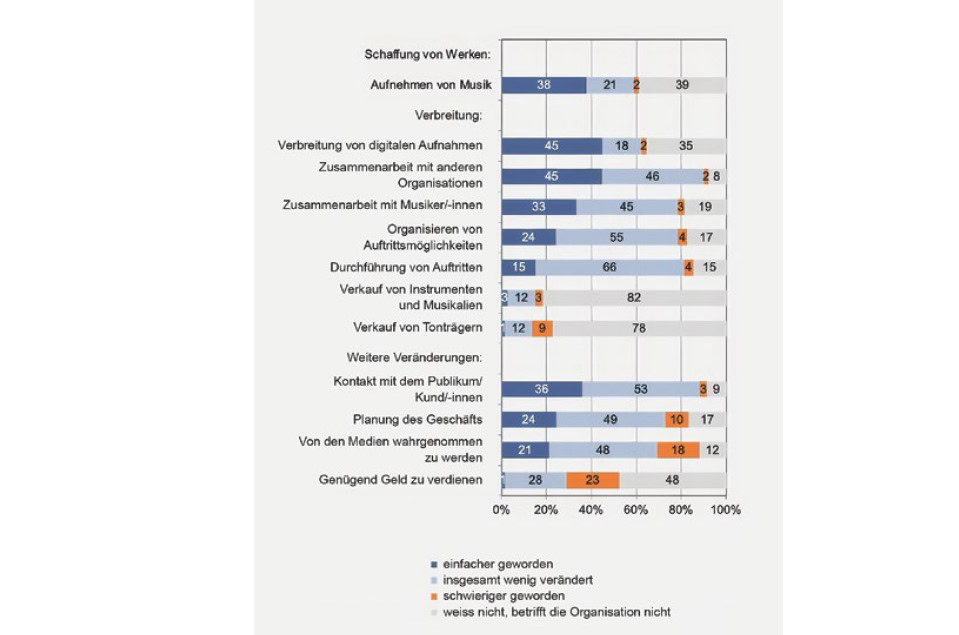Farewell
Frank-Thomas Mitschke bids farewell to retirement with two "short stories of the future".

Frank-Thomas Mitschke - The "Après-Avantgarde" ensemble was a guest in H., and the six musicians - engaged by the city's cultural department and the adult education center in a concerted and equally concerted action - introduced the audience to the music of ultra-modernism. For example, the thirteen-minute epic "Niemaczegośtakiegojakprzypadek" by the composer Zbigniew David Owidzenia, who is highly regarded in the Opole region. This master of modern sounds carefully avoided arranging even one passage in his masterpiece in such a way that anyone could have sung it. Instead, they played what God or their mother-in-law had whispered to them without a score. The maestro, who had traveled from Poland especially for this purpose - it was, after all, the premiere of the work, and reportedly the only one - eloquently explained the meaning of the 17 individual sections from his epic. Unfortunately in Polish, which virtually nobody in H. understood.
The introduction to the opus cacophonisticum by the German master of composition Johannes S. C. Heuslich was given by the ensemble's alphorn player. He eloquently explained the relationship between the sounds produced by the alphorn and Einstein's theory of relativity - even in German! However, as he was from Bern, the concertgoers also thought this was Polish and understood nothing, which made them applaud all the more enthusiastically.
Unfortunately, the municipal grand piano from Schiedmayer & Söhne broke down under the required seven-fold forte in the Opus Cacophonisticum, so that Miss Schimmelpfennig, who was present at the concert as a representative of the city (she had lost her way while drawing matches), called the piano tuner Markus W.. Fortunately, he was at home having dinner, which he left and immediately rushed to the concert hall, where visitors and performers took a forced break due to this breakdown and some tried to wash down the memory of the first half with a few bottles of warm beer, while others got into the mood for the demanding second half of the concert with warm vodka.
Markus W. set to work, tried everything to make the old Schiedmayer and his sons playable again and then tuned the instrument. As all tuners do, he played chords, scales, fragments from Mozart sonatas, Bach preludes and Schubert impromptus.
At the first sounds of the scales, the first visitors came back into the hall, and with Mozartian fragments paired with bars by Schubert, all the visitors, who had been toying with the idea of faking a sudden problem with the babysitter, streamed back into the hall to their seats.
When Markus W. had finished his work and put his tuning hammer back in his tool bag, a frenetic applause broke out, he received standing ovations and several shouts of "encore", so that he tuned the entire octave again.
When he left the stage - still to thunderous applause - and the ensemble re-entered the stage, the hall emptied at breakneck speed - except for Miss Schimmelpfennig, who had the door key and had to hold out until the end.
The review in the H'sche Zeitung was overflowing with enthusiasm and attested Markus W. a wonderfully sensitive touch as well as an impressively large repertoire.
For all future concerts, the H. City Council has decided to publish the name of the vocalist in large letters with a photo on the poster, while the names of the musicians actually involved can be found in small print alongside the advance booking conditions.
Mitschkipedia - MODERN MUSIC: If you're competing with Mozart or Schubert, you've lost.
Ronald wanted to be a tenor. He felt like an opera singer with every fiber of his earthworm body, nothing was closer to his heart than the masterpieces of bel canto, and nothing could stop him from trying to get closer to this goal through constant practice.
Unfortunately, his voice was very small - perhaps also due to his naturally very limited girth - and he also struggled to produce the tenor capers that the great Gioacchino Rossini, for example, put down Count Almaviva's throat. So he decided to take lessons with Madame Grazielle Gazelle in Paris. She was known for her incredible ease with the most difficult coloraturas - the Queen of the Night sounded to her as if Mozart had composed a harmless children's song. "Bonjour," said Ronald Earthworm to Mme Gazelle, "I would like to train my voice with you, I am particularly fond of your wonderful coloraturas, which I can perform with the same ease and grandeur....." "Merci, merci," the famous singer interrupted him and looked him in the eye - which was not easy, as she had to bend down very low to do so. "Alors, mon cher - sing, sing, sing!" Ronald sang Count Almaviva's aria and stumbled through the coloratura. "Oui, eh - you know," said Mme, "what you need first of all is volume, volume, volume - without that you can't best'en in the opera! My advice: go to Leopold Löwe, the great baritone - he can out-sing everything that's on stage except him, and from him you'll learn the technique of filling an entire opera with your voice!"
Ronald traveled to Milan, where the great Leopold Löwe was singing as a star guest at La Scala. He had prepared the Duke of Mantua's aria from Verdi's Rigoletto, but before he could vocally prove to the great baritone that all women were equally dear to him, the singer interrupted him and boomed in his famous thunderous voice "Carissimo, bene, bene - but I can't teach you! La voce - er, voice much too small, troppo piccola, lacking foundations.....You need basic lessons with the great Martin Maulwurf, greatest basso of the present! His voice is as deep as his underground dwelling, huahuahua, he'll do basic work with you and then you come back to me and we'll work together!"
Ronald Regenwurm gratefully accepted the advice and traveled to Munich, where the bass Martin Maulwurf was singing at the State Opera. His apartment was in fact located deep below the first floor, on the 5th basement level, because he found it so pleasant and quiet there and because he believed that his famous low notes developed better far below the ground. Ronald sang "Nessun dorma" from Puccini's Turandot, and he sang with an unprecedented fervor and passion.
Mole's neighbor, Werner Wühlmaus, later recounted that just as he was waiting for the high "b" as the final note of the aria and was about to knock on the wall for disturbing the peace - it was lunchtime after all - the singing suddenly stopped and he heard loud slurping and smacking coming from the neighboring apartment. The boards that mean the world had to do without Ronald Regenwurm.
And the moral of the story: even for a tenor, it's not enough to sing like a worm!








